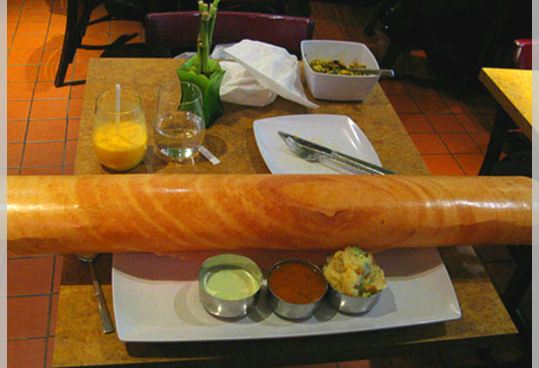
New York, July 9: Popular South Indian dish Masala Dosa has made it to the list of '10 foods to try before you die', compiled by the Huffington Post.
The list, prepared by travel blog viator for the newspaper, includes dishes from around the world as a must-try for travellers.
Masala dosa features in the list alongside the Peking duck from China, BBQ ribs from the US and Teppanyaki from Japan.
"The plate-covering, paper-thin pancake is made from rice and lentils, cooked to lacy perfection on a hot griddle. What creates the more-ish flavor is a spiced concoction of mashed cooked potatoes and fried onions, served with a liberal dose of garlicky chutney," the website describes masala dosa.
The list also includes France's Escargots, which are actually snails generally eaten as an appetizer, served in the shell and cooked in a delicious melange of garlicky parsley butter.
Moussaka on the list is described as the Greek answer to the Italian lasagne. "The dish is made by smothering layers of ingredients in a cheese bechamel sauce, and baking until creamily melted and golden."
Other foods on the list are Zucchini flowers from Italy, Seafood curry laksa from Malaysia, Thai dish Som tam or green papaya salad and Pavlova from Australia-New Zealand.
"Sampling the local cuisine can help you make friends, understand the history, politics or religion of the place you're visiting and provide a lasting memory of your trip.
Food and travel go hand in hand, and there's no better way to delve deep into a destination than to try its most famous dishes," said the newspaper.






Comments
Add new comment